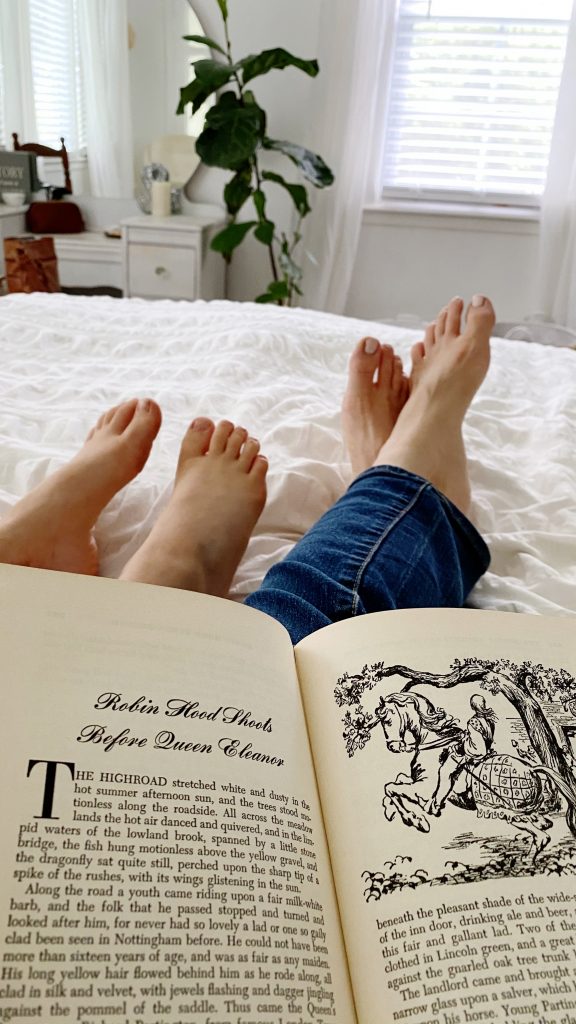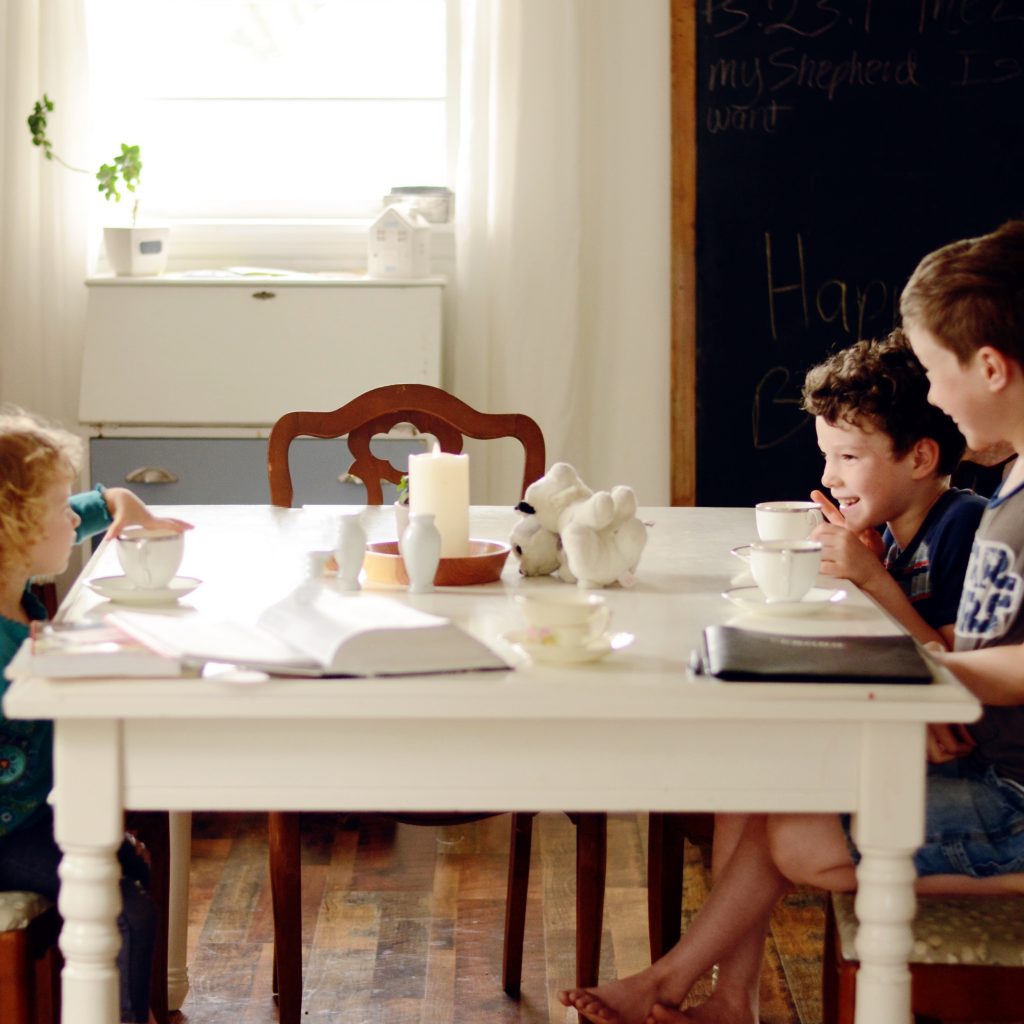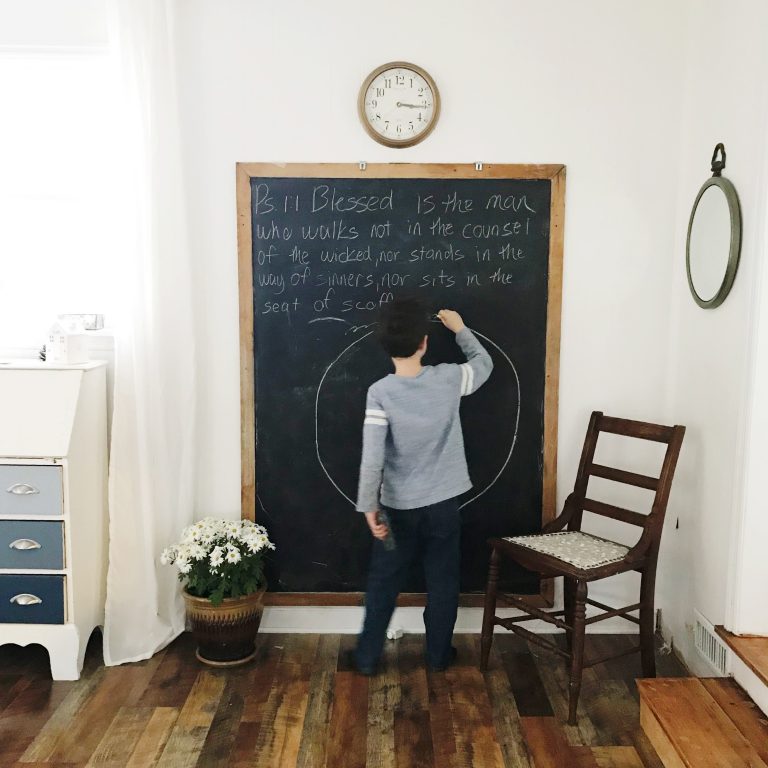(All photos in this post are by my friend Amy, on Instagram as @amy.law.)
Homeschooling… Maybe you’ve thought about it for the first time this year, after doing it unexpectedly in the spring. You may have all kinds of questions and the answers are either hard to find or overwhelming. Questions such as, “Will my kids be socialized? Will they get a good education? Will people think we’re weird? Is this legal? What curriculum will I use? How will I teach my kids things I don’t know myself?” I had a lot of questions when I first started, too, and I’ll answer the Top 10 in this post. Here are 10 things to know before you start homeschooling:
1. You need to know that homeschooling is a full-time commitment of at least one school year.
To really do homeschooling the way it should be done, you don’t “fit school in” with your day, it IS your day. Other activities fit in around school, like they do when you have a job. There is some flexibility involved as far as hours, true– but you have to be committed to showing up everyday for the duration of the school year. In some states, you may have to record your actual hours spent homeschooling each day.
2. You need to know the laws in your state.
Start with Homeschool Legal Defense Association (hslda.org), and link to your state laws from there. HSLDA is an excellent resource for legal and other homeschooling advice.
3. You need to know that school at home does not look like regular school.
That doesn’t mean homeschooling is academically inferior to traditional school at all– just that there are less children, they are all yours, and they live in your house, so the whole flow will be different. As a former elementary school teacher, I had a little “classroom” all set up for our first year. It was a miniature version of what I had when I taught, and my little girls sat at desks while I stood at the front of the room, and even had them raise their hands to answer! By the end of that school year, they were mostly doing their work at the kitchen table, and accomplishing just as much.

4. You need to know that you do not have to be a former teacher to homeschool.
As long as you meet the requirements for your state, you are eligible. Of course there are some people who shouldn’t homeschool. I’m assuming my readers have at least the equivalent of a high school education, a safe and healthy environment to homeschool in, and some spousal or other support in the decision. If you feel like you want to homeschool but are lacking some of these factors, I encourage you to talk to a seasoned homeschooler or educator before taking the plunge to see if this is really right for you.
5. You need to know that homeschooling is not simply online school at home.
In a pinch, that works, but true homeschooling is planned and carried out by the parents, whether that includes parental teaching; outsourcing to a tutor, homeschool academy, or dual credit college class; or a mixture. The parent is the ultimate educator.

6. You need to know that other homeschoolers want to help you.
If you know any, talk to them! Ask if you can observe part of a day in their homeschool, and what they wish they knew before they started. Read books recommended by them, such as this book by my friend Tricia.
7. You need to know that homeschool conferences are extremely helpful.
I wish I’d gone to at least one! (More on that regret later.) At this time, some of these conferences may not be happening, or may be moved online. I’d definitely do a search in your area and see what you can find. There is a wealth of information to be learned!
8. You need to know that you should keep the first year as simple as possible.
You will already have times you feel overwhelmed, and you don’t want to add to that. My friend Lauren’s recommendation for keeping it simple is to use a single curriculum. That made a difference the first year she homeschooled her three children. Later, she met another homeschool mom who helped her branch out and find different curricula for different subjects to suit her family, but that first year, simplicity was key.
9. You need to know that your children can be as socialized as you want them to be.
Ironically, socialization is what most schools are trying to avoid this fall, which may be why you’re considering homeschooling in the first place. But in years past, it was a main concern. Let me put to rest your fears about socialization. Most of the time, you have many activities to choose from, including activities with other homeschoolers during the day, and extracurricular activities that children from traditional schools also participate in. My children had park days, club/special class day, cousins, friends, Sunday school, youth group, children’s choir, ballet, sports teams, and drama lessons, just to name a few. They are all young adults now, with jobs, functioning well in society and able to comfortably interact with people of all ages. So have no fear– with very little effort on your part, your children will be as socialized as you want them to be.
10. You need to know that you CAN do this.
Aside from a few caveats (see #4 above), you are more equipped than anyone to educate your own children, because only you really know your children. Yes, you will have moments of frustration and may feel like you don’t know how you’ll finish the year. But, to paraphrase Theodore Roosevelt, “Nothing worth having comes easily.” That is true of anything in life, including your child’s education. So take heart! You too can homeschool.
I’d love to hear you thoughts and questions in the comments! I’ll address those in my next homeschool post.

